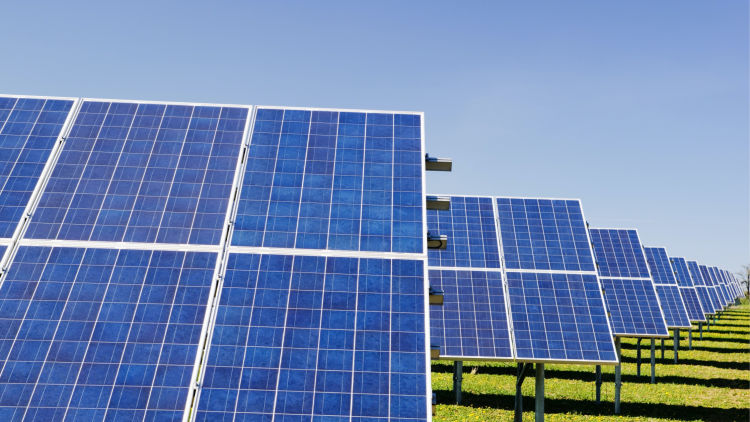How ecobee is Helping to Protect Community Housing Residents From Extreme Heat
by ecobee on 09/12/2023 in Donate Your Data
5 min read

It’s estimated that over 17 million Canadians will experience extreme heat over the next few decades, and researchers at Ubilab (Ubiquitous Health Technology Lab) at the University of Waterloo have been helping bridge the gap on what indoor conditions will look like as a result. We sat down with Arlene Oetomo, who has been researching the intersection of our climate crisis and the Internet of Things using ecobee's Donate Your Data program, to learn more about how community housing residents become vulnerable to heat waves – and what we can do to better protect them.
More than 200,000 ecobee Smart Owners have opted-in to ecobee’s one-of-a-kind Donate Your Data (DYD) program, creating a unique window into energy use in the home, and making it the world’s largest home energy efficiency dataset.
By sharing the anonymized data from customers who have opted in, ecobee is helping researchers around the globe in their studies aimed at creating a more sustainable and healthier future for communities.
ecobee Citizen: What was the goal of your research?
Oetomo: Our goal was to learn about how high indoor temperatures reached during extreme heat events and to understand how residents behaved during these peaks to protect themselves. To do this, we partnered with community housing organizations in BC and Ottawa – using both ecobee thermostats and Donate Your Data (DYD) data. We created a near real-time alert system using ecobees that notified stakeholders when a home reached a specific threshold temperature for a certain period of time, enabling targeted interventions in the form of phone calls or check-ins.

ecobee Citizen: What were your key findings?
Oetomo: We observed large differences between indoor and outdoor temperatures throughout the summer 2022 period, and it varied across the buildings we tested in. Maximum indoor temperatures went as high as 10 degrees Celsius above outdoor temperatures (despite a relatively mild season compared to the 2021 season that experienced the Heat Dome), which with prolonged exposure may be harmful for to residents, especially vulnerable individuals.
ecobee Citizen: How did your research translate into recommendations?
Oetomo: We created a report for BC housing with recommendations on being more prepared for heatwaves, informing their tenants on how to protect themselves, and advocating for more funding to prioritize the health of their tenants. We know it's getting very hot inside and having data to show decision makers is key to creating policy changes at the organizational and governmental levels. In general, the findings from this research highlight that indoor heat continues to be a serious risk to many communities. Solutions come in many forms, while many may suggest increasing provision of AC in such buildings, we must also look for nature-based solutions, such as natural ventilation and external shading that do not contribute more and reduce GHGs.

ecobee Citizen: What can we look forward to as you continue to conduct this research?
Oetomo: In the long term, we want to have indoor temperature legislations for hot temperatures, especially in low income or resource poor settings, all places without air conditioning, to mitigate the effects of climate crisis on vulnerable people. We hope we get more opportunities to do larger and longer studies moving forward to better protect people from future extreme heat events. We are very grateful for the support provided by ecobee and its customers over the years through the DYD program, and especially on this project.

About Arlene Oetomo.
Arlene is a PhD candidate at the University of Waterloo. She completed a BSc in Health Studies from the University of Waterloo in 2018. As a climate and public health researcher, she uses smart home technologies for in-home health behavior monitoring via IoT and smart home technologies (like smart thermostats), focusing on the impacts of extreme heat events (heat waves) on underserved communities. She's also exploring using Generative AI for public health applications to fight infodemics and extreme weather events while advocating for climate justice and ensuring equitable access to safe digital and physical spaces for all. During the start of the pandemic, she advised the development of a contact tracing app called Covid Watch. She previously worked on the ConnectingGTA project; a regional electronic health record system led by the University Health Network. Her other experiences include a semester abroad in Bordeaux, France, working at a medical research software company in Amsterdam, and leading a health records project at Saint Elizabeth Health Care.
About Donate Your Data.
ecobee offers a one-of-a-kind Donate Your Data (DYD) program that invites customers to voluntarily share anonymized data from their thermostats with scientists and researchers all over the world who are answering critical questions related to the clean energy future. Since we launched the program in 2017, over 200,000 ecobee Smart Owners across North America have opted-in to-date, making it the world’s largest home energy efficiency dataset. We’ve partnered with researchers in over 10 countries – including Yale, UC Berkeley and University of Toronto. __ Interested in joining over 200,000 ecobee customers and helping researchers like Aya Doma better prioritize decarbonization funding? Sign up for Donate Your Data in a few short steps:__
- Open the ecobee app.
- Tap the Account icon in the top-left corner.
- Select Donate Your Data.
- Toggle on Donate Thermostat Data.
- Learn how your data is anonymized and your privacy protected, then tap Accept & Join.
Did you enjoy this article?
Thanks for letting us know!

